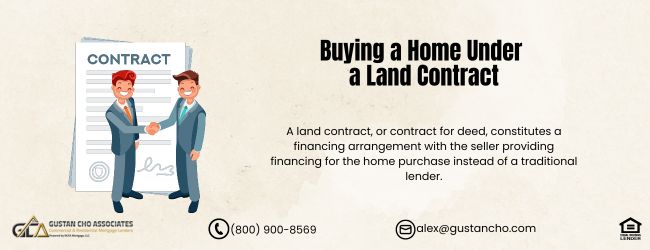Reverse Mortgages For Seniors Eligibility Requirements

This guide covers reverse mortgages for senior eligibility requirements. States such as California, New York, and New Jersey have the highest home values in the nation. The median home value in the state of California is $923,500 versus the national $534,760 average. California has seen a sharper increase in the value of housing due to the extreme shortage of homes in the state. California has the most high-cost counties in the nation, more than any other state. Homebuilders have a harder time getting land and permits in California due to its strict environmental rules and guidelines. This is why California has sharply increased home values compared to any other state in the nation. The spike in home values over the past several years has motivated many senior homeowners to take advantage of taking out a reverse mortgage. Proceeds from reverse mortgages are tax-free. No rules or regulations exist on how homeowners can spend the proceeds from reverse mortgages. This article will discuss qualifying for a reverse mortgage loans in traditional median priced areas and high-cost counties in the United States..
California Home Values
California is the most populous state in the United States and has the highest home prices in the nation. However, not everyone can qualify to purchase a home in California. The median home price in California is $623,500, versus the national average of $334,760.
Here are the key points of the housing market in California:
- California also has one of the highest home prices in the nation
- Real Estate Values in the state has enjoyed double-digit increases since 2012
- Many California homeowners who purchased their homes right after the 2008 real estate and mortgage meltdown have substantial equity in their homes
- California homeowners who are at least 62 years old and have equity in their home can qualify for Reverse Mortgages In California
- HUD, the parent of the Federal Housing Administration ( FHA ) has special equity-based home loan program for seniors called Reverse Mortgages
These loans are a special type of mortgage created for seniors to enable them to convert the equity in their home to cash. Click Here To Apply For purchase a home in California
Purchase Reverse Mortgages
Senior homebuyers who are at least 62 years old are eligible to qualify for purchase reverse mortgages in California.
- How this loan program works is buyers need to put a significant down payment on their home purchase
- There are no income and/or debt to income ratio requirements
- Reverse Mortgages are equity-based loans
- The older the home buyer is, the less down payment is required
- Buyers who have purchase reverse mortgages never have to worry about making a single monthly mortgage payment for the rest they own the home
- Homeowners are responsible for property taxes and homeowners insurance
Contact Gustan Cho Associates Mortgage Group for more information on this AMAZING loan program available only to seniors.
Proceeds From Reverse Mortgages In California
Proceeds from reverse mortgages can be used in any way or form by homeowners.
- General living expenses
- Home renovation and improvements
- Pay outstanding debts such as credit card debts, auto loans, student loans, installment loans, and other debts
- Health care costs
- Vacation
- Investments
- Buying second homes and/or investment properties
With the Dow Jones surpassing 43,000, many senior homeowners are cashing in on their home equity with a reverse mortgage and investing in gold, silver, and other precious metals.
Qualifying For Reverse Mortgages In California
California has one of the highest property values in the United States. Mortgage interest rates have been the highest in ten years but there has been no slowdown in home purchases in all areas of California. There are more homebuyers in California than the inventory of homes.
- Home values in California have appreciated more than any other state since the 2008 Great Recession and Real Estate Meltdown
- Most California homeowners who owned a home since 2008 have equity in their homes
- Home values in most counties in California have appreciated double-digit returns year after year the past few years
- Many homeowners have more equity in their homes than they realize they have
Qualifying Factors To Qualify For Reverse Mortgages In California
Here are the qualification requirements to qualify for reverse mortgages:
- The borrower needs to be 62 years old
- Have equity in their homes
- No credit scores required
- Bad credit is not a factor
- Recent late payments is not a factor
- Income is not a factor
- Payment is reversed
- Once homeowners refinance with reverse mortgages, they never have to worry about making a mortgage payment ever again until they die or sell their home
- Only owner occupant homes are eligible
- When the homeowner passes away, the heirs to the property either has the option of refinancing, selling the home, or surrendering the home to the lender
The payments due on reverse mortgages gets added to the balance of the loan. The reverse mortgage loan balance keeps on getting larger as time passes. The reverse mortgage is due when the homeowner dies or when the homeowner decides to sell the home and pay the reverse mortgage loan balance. Qualify for Reverse Mortgage in California
Benefits Of Reverse Mortgages In California
Reverse Mortgages benefit California homeowners to stay in their homes and improve their quality of life without having to ever make another mortgage payment. Most borrowers will take a one lump sum cash out when they do a reverse mortgage and pay off all of their debts and have plenty of cash in their bank. Reverse mortgages are tax-free and borrowers do not have to pay taxes on the amount of cash out they get when refinancing.
Home Equity Conversion Mortgage ( HECM )
Reverse Mortgages is also referred to as Home Equity Conversion Mortgage (HECM). HECM is not new and the first Home Equity Conversion Mortgage in the U.S. was launched in 1987.
HECM Versus HELOC
Here are the differences between HECM Versus HELOC ( Home Equity Line Of Credit )
- Need to be 62 years old with HECM
- There are no age restrictions with HELOC
- With HELOC, the borrower needs to credit qualify with minimum credit scores and income
- With reverse mortgages, borrowers can have bad credit and income is not an issue
- HELOC require borrowers to make minimum monthly housing payments
- No monthly payments are necessary with HECM
- Monthly payments due is added to the balance of the loan with reverse mortgages
- HELOC allows homeowners to have a first mortgage
- With a reverse mortgage, the lender needs to be in the first position
As with the loan to value on the amount the homeowner can cash out depends on the age of the borrower. The older the borrower, the higher the loan to value. Reverse mortgages only benefit seniors with equity in their homes. Homeowners with little to no equity cannot benefit from reverse mortgages.
Types of Reverse Mortgages In California
Borrowers of reverse mortgages have the following choices: Get cash-out of one lump sum payment from their reverse refinance. Get fixed monthly payments for the rest of their lives from the proceeds of their refinance. Get a line of credit. Reverse mortgages also allow fixed monthly payments for a finite time period. Or a combination of monthly payments and a line of credit. The interest rate charged on reverse mortgages is usually an adjustable rate that changes monthly or yearly. The size of monthly payments received by the senior doesn’t change.
Loan Limits on Reverse Mortgages in California
The mortgage loan size of reverse mortgage borrowers can qualify for depends on the following:
- Type of reverse mortgage.
- Borrower’s age and current interest rates.
- Property value.
- The older the borrower is, the larger the cash-out refinance amount, the larger the monthly payments, and/or the larger the line of credit.
- Lenders use projected life expectancy in determining the size of reverse mortgages.
- Borrowers do not have to meet income or credit requirements.
- Reverse mortgages isn’t repayable until the homeowner does not occupy the home as their main residence.
- This can occur if the sole remaining borrower dies, sells the home, or moves out of the home, say, to a nursing home.
Repayment of Reverse Mortgages
Here Is How The Repayment of Reverse Mortgages Works:
The repayment on a reverse mortgage is the principal balance of the loan, plus accrued mortgage interest, plus any other finance costs paid for through the term of the loan. The repayment cannot go over the home’s value. Once the homeowner dies, the heir inherits the home where they have the option of refinancing, paying off the reverse mortgage, selling the home, or surrendering the home to the lender. If the lender takes the home and sells it over the amount it is owned by the reverse mortgage, the excess proceeds will to the heirs of the reverse mortgage. In the event, if the lender sells the home and there is a deficit from the sale, the shortage is covered by FHA and the heir’s of the borrower is not responsible for the shortage. The obligation of the repayment cannot go over the value of the property. Borrowers cannot be forced to sell their property in order to repay reverse mortgages as long as they are owner-occupant of the property even if the loan balance exceeds the value of the property. Borrowers who live a long life are still welcomed to live on their property.
If you have any questions on reverse mortgages, please contact us at GCA Forums Mortgage Group at 800-900-8569 or text us for a faster response. Or email us at gcho@gustancho.com. The team at GCA Forums Mortgage Group are experts of reverse mortgages.






Responses